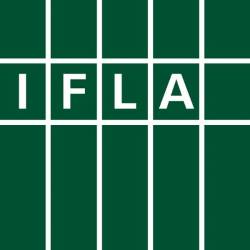
IFLA Issues Statement on Fake News
September 3, 2018
IFLA, the International Federation of Library Associations and Institutions, issued a Statement on Fake News at recent World Library and Information Congress in Kuala Lumpur, Malaysia.
The statement sets out IFLA’s position on fake news, and makes recommendations to governments and libraries. It will also be accompanied by a toolkit of resources.
IFLA Statement on Fake News
The International Federation of Library Associations and Institutions (IFLA) is deeply concerned about the phenomenon of ‘fake news’, and in particular the policy responses that aim to address it. This statement contains recommendations to governments and libraries, and will be accompanied by a toolkit of resources.
Background
Social and economic progress relies on individuals being able to make better decisions for themselves and their communities. This in turn depends on access to quality information and adequate information literacy and critical thinking skills. False or misleading stories claiming to be factual – if they are believed – risk undermining this decision-making.
Deliberate lies, misrepresentations and hoaxes are nothing new. However, with digital technologies, it is increasingly easy for anyone – not just governments or those with extensive resources – to create, spread and share such materials further and faster than ever before.
Nonetheless, our understanding of the impact of “fake news”, and the motivations of those who create and share it, remains limited and needs constant updating to reflect social, political and technological changes.
Unfortunately, the concept of “fake news” is increasingly used as a new justification for old-fashioned censorship. The popularisation of the term has served to legitimise laws or regulations which have a disproportionate impact on freedom of speech, or simply strengthen the position of traditional news and information sources at the expense of new media.
Fake News and Libraries
Libraries have an institutional and ethical commitment to help users access reliable and authentic information. This role is as important as ever in an era when “fake news” is a seemingly growing phenomenon.
At the individual level, active library efforts to build relevant media and information literacy can also help support citizens to evaluate critically the credibility and appropriateness of information sources.
IFLA’s Internet Manifesto (2014) and Statement on Digital Literacy (2017) underline the role of libraries in helping individuals harness the potential of digital tools, including through critical thinking. IFLA has engaged for many years in global initiatives on media and information literacy, and produced tools such as the infographic on how to spot fake news.
IFLA also has a long-standing commitment to freedom of access to information and freedom of expression. It is clear that any restrictions on this – through censorship or the blocking of access to digital resources and the internet – must be strictly limited. This includes respecting the Manila Principles on Intermediary Liability.
IFLA therefore calls on governments to:
- Refrain from passing laws which will have a disproportionate impact on freedom of access to information and freedom of expression, notably through broadly or vaguely defined ‘bans’ of ‘fake news’, or other restrictions of access to digital resources and the Internet.
- Ensure that Internet platform regulation does not create incentives to restrict free speech in an unwarranted fashion.
- Show restraint in referring to “fake news” to avoid legitimising it as an excuse for censorship.
- Invest in media and information literacy programmes at all levels and for people of all ages which respond to contemporary needs, notably through libraries and schools, as part of broader efforts to achieve UN 2030 Agenda targets on education.
- Support research into:
- the way in which information is created and shared online, while respecting the privacy of users, and
- advertising models which may distort the way in which information is displayed and shared.
- Work with all relevant partners to promote the value of quality information, ensuring that such efforts do not exclude new or diverse voices.
IFLA encourages its members to:
- Underline the importance of media and information literacy both as a foundation for development and well-functioning societies, and a response to concerns around ‘fake news’.
- Continue to support programmes, strategies, partnerships and information sharing that promote digital literacy.
- Defend the importance of freedom of expression and freedom of access to information.
Approved by the IFLA Executive Committee on 20 August 2018
(Via International Federation of Library Associations and Institutions)
Add a new comment